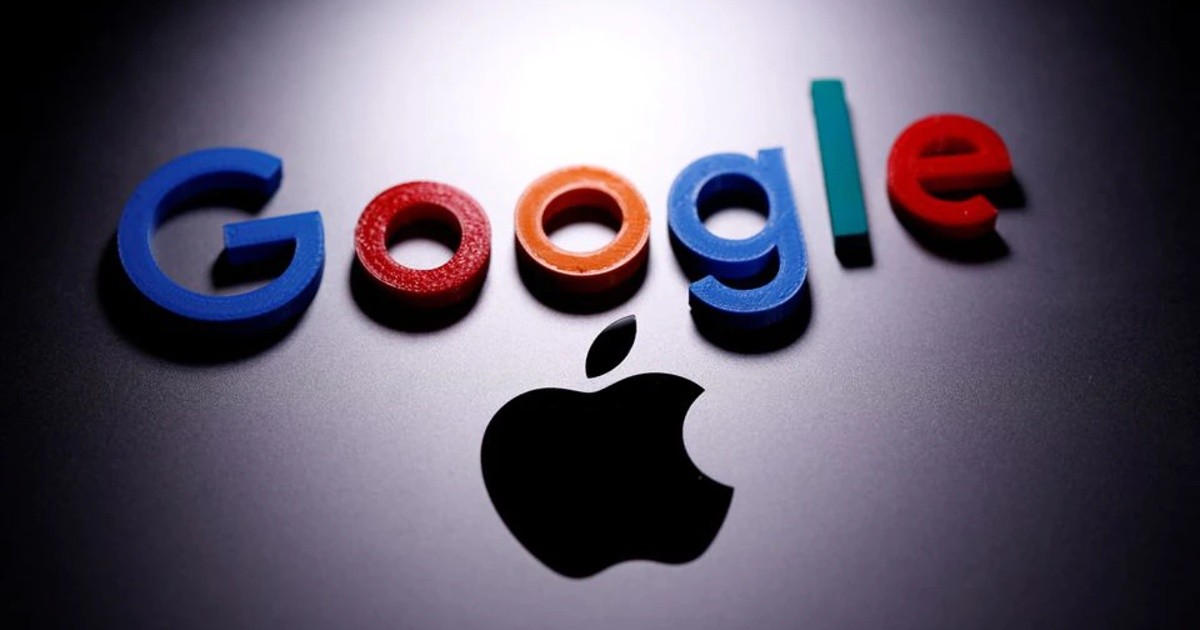Mony de Swaan, former president of the former Federal Telecommunications Commission (Cofetel) and current founding partner of the Center for Studies and Research in Public Affairs (CEIAP), filed a complaint against the large American technology companies Google Y Manzana for the possible commission of relative monopolistic practices.
De Swaan’s complaint, filed with the Federal Telecommunications Institute (IFT), points to Google and Apple for making tied sales within their app stores by forcing users to use only their payment processing systems. He also accuses them of charging arbitrary commissions that are not determined by the market but by the companies’ dominance in the sector.
In an interview with The Economist, Swaan’s He talks about the motivations that led him to file this complaint and the consequences it could have for Google and Apple, the developers of applications and digital content, and the end users.
—What motivated you to file this complaint against Google and Apple for alleged relative monopolistic practices?
“I did it in my own right, but on behalf of clients app developers and digital content, both national and foreign, that are obviously afraid of possible retaliation by those reported. That is the motivation.
—What are the reasons for these developers to file this complaint?
—There are basically four practices, which are the ones denounced in the text presented to the IFT on Thursday (September 8), which have to do, first, with the fact of forcing any payment that occurs in the application stores of those denounced must occur not only through the payment processors of those application stores, in this case Google and Apple, which is understood as a tied sale.
The second is the collection of commissions that in our opinion are excessive and that range between 15% and 20%, depending on whether it is a subscription or the purchase of some digital good. The third has to do with a practice called anti-redirect, which is basically the inability of a developer to notify their client or consumer that there is another way to acquire that digital good. Say something like “If you want to get this same subscription or digital good through a different platform than the one we’re on right now, you can.” That is prohibited in the terms and conditions of both reported.
And finally, the fourth, the handling of data and information by customers is common in the terms and conditions, and by forcing payment processing to occur in their payment processors, which distorts the relationship between customers and suppliers, by keeping Google and Apple with the data and information of the client, evidently allows both defendants to further consolidate their position.
What happens now that the complaint has been filed?
—I filed the complaint with Cofece on July 15 and Cofece, like the IFT, has 15 days to analyze the complaint and make a decision in two ways: either open the investigation or prevent the complainant by requesting more information. We received a prevention agreement from Coffee where he requests information from us and asks us a series of questions and at the same time tells us that he does not comment on the competence that Cofece may or may not have regarding the complaint.
Given this reserve that he issues and given the type of questions, in which he makes us understand that for Cofece it is about the same value chain and even the same product —I am referring to mobile devices, operating systems and stores of applications, which according to the Judiciary are the competence of the IFT—, we realize that in reality the Cofece has doubts that it is within its competence. We also think about it and say: “Let’s go to the IFT”.
The first step is for the IFT to carry out the same analysis that Cofece did and decide whether to open the investigation or whether to prevent me as a complainant to send more information. They have 15 days for that, so in 15 days we will have to know if the IFT, in full use of its powers —and it must be said with all its letters that either of the two routes is perfectly legal—, can ask me for more information or can open the investigation and then has this different deadlines set by law to carry out the investigation.
—What have been the results of the investigations carried out by the authorities in the United Kingdom, in the European Union, in Germany, in the Netherlands, where they have acted against Apple and Google for this type of allegedly anti-competitive practices?
—Obviously it is impossible to give a unified answer because the degree of progress is different and because there are different laws. First, let me tell you that under no circumstances do I present this complaint thinking that it is particularly innovative. I would tell you that the most emblematic cases for me, as a complainant, are those of Holland and those of South Korea, but English, German, and American are no less important. All of them are currently under investigation. These practices are being and continue to be investigated and in some cases there are still no firm resolutions.
I dare to think that they are going to orient themselves a bit towards where the Dutch and the Korean agency have already oriented themselves. In Korea, for example, it was through legislation that, instead of setting the commission that app stores can charge, prohibited you from forcing the payment processor to be exclusively yours. What they did was generate competition and trust that the dynamics of competition find the exact value of that commission. I don’t think that a commission shouldn’t be charged, there is obviously a benefit that developers get from being on these platforms. That is undeniable, I am not unaware of it, the issue is that by having a monopolistic position and not being regulated, it is a totally arbitrary commission
In the Netherlands, the non-redirection of information has been prohibited, that is, the developer can tell the user: “These are the alternatives that you have to buy, if you want to leave the application you can go to my portal, to my site, to my URL and there acquire this same service without commissions or at different prices or with other offers that I can offer you.
—What could be the consequences for Google and Apple if the regulator in Mexico decides to admit the complaint and investigate these practices?
—This is for the authority to say. What I can tell you is that it can obviously force them to modify those practices, it can impose a fine or it can force them to modify these practices and, if it feels that the accused have not complied with the modification, sanction. That is what happened in the Netherlands, where the obligation to allow collection by other payment processors was imposed. They did not comply and were already sanctioned for that. So there are many scenarios.















